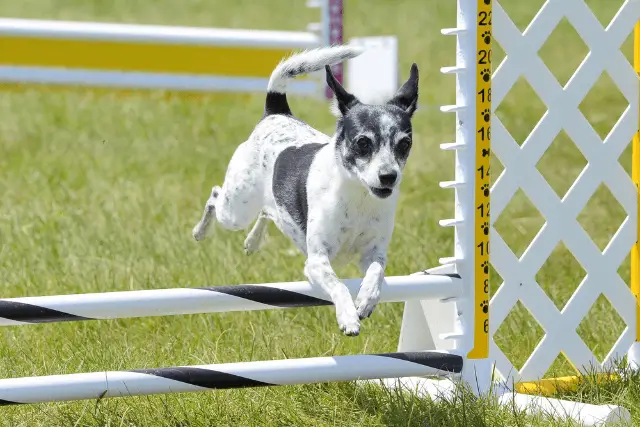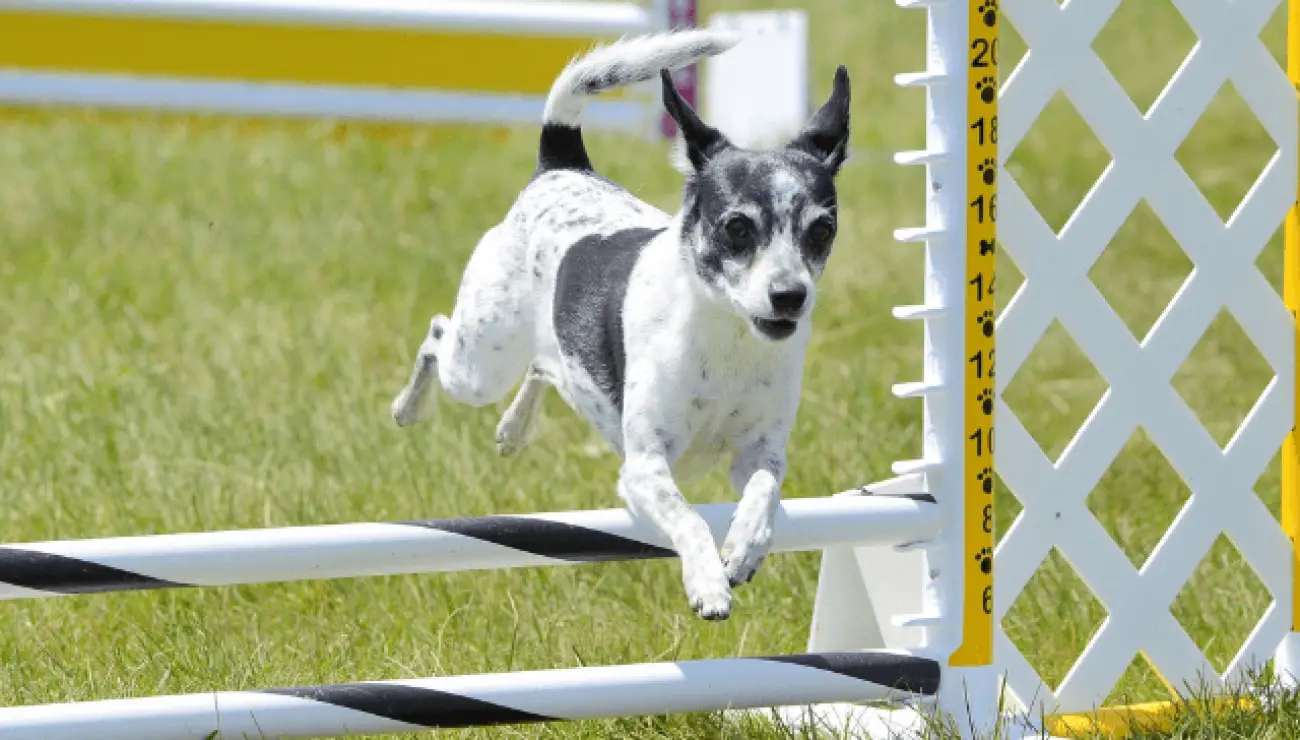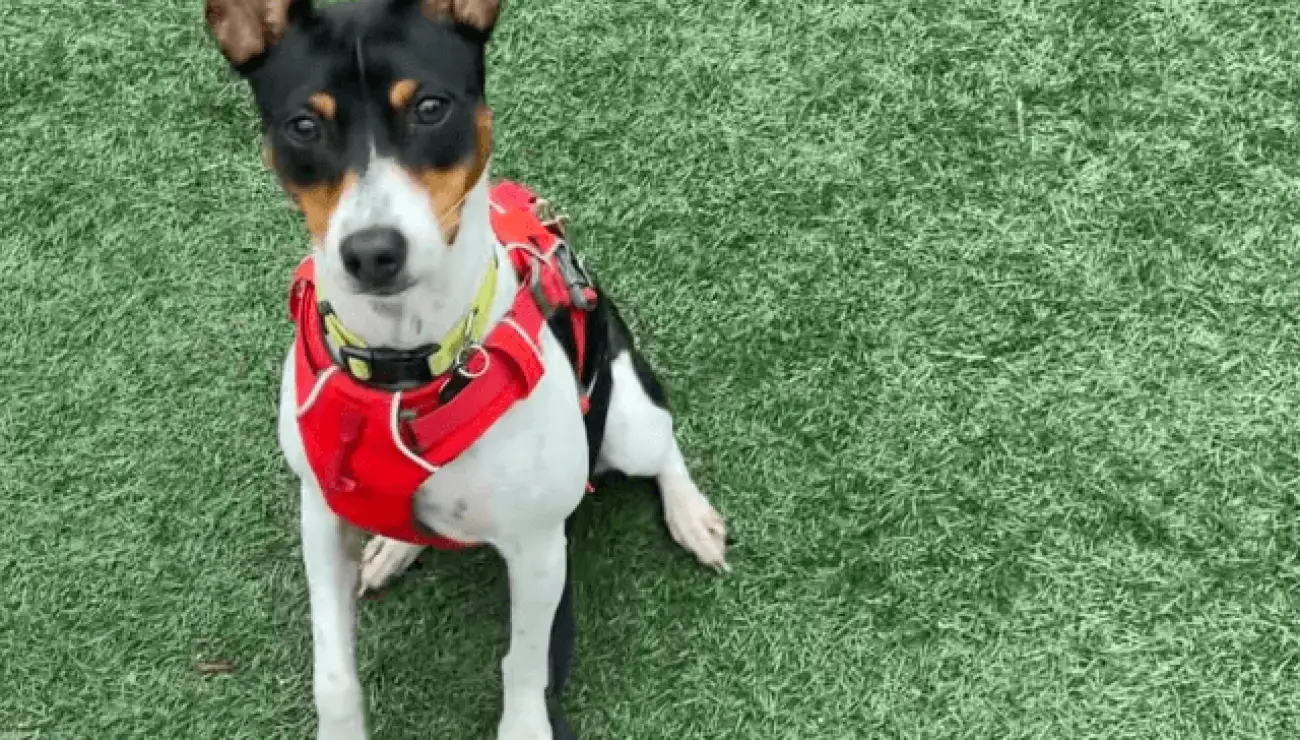Rat Terrier
The Rat Terrier is an all-American breed and the result of combining several terrier breeds that were bred in recent history to help get rid of pests and rodents that occupied family farms between the 1910s and 1940s. Eventually, farmers began using poison to control the rodent population, so the number of these dogs started to decrease. In the late 1970s, these dogs re-emerged, but this time they were more popular as family pets.
FUN FACT: Rumor has it that President Theodore Roosevelt named this breed after his dog named, Skip, who solved the White House rat problem during his presidency. It hasn’t been proved that the dog Theodor Roosevelt had was the Rat Terrier, but the name has stuck and has been used ever since.

Height:
10-18 in (25-46 cm)

Weight:
10-25 lb (4.5-11 kg)

Origin:
USA

Life Expectancy:
12-18 years
Dog Breed Characteristics
The Rat Terrier is a small and sturdy dog. Miniature Rat Terriers are between 10-13 inches (25-33 cm) in height, and Standard ones are 13-18 inches (33-46 cm). These dogs weigh 10 to 25 pounds (4.5-11 kg). This dog has pied (large patches of one or more colors with white) or particolored short coat, and the color white is dominant, covering 10-90 percent of the dog’s body. The other colors on Rat Terriers’ body can be red, black, blue, chocolate, apricot, tan, fawn, or lemon.
The Rat Terriers’ smooth coat is easy to maintain; weekly brushing with a soft brush or a rubber curry mitt to remove loose hair will be enough to keep the coat clean and healthy. Shedding is moderate, except in the fall and spring. Rat Terriers should be bathed, and their nails should be trimmed as needed.

FUN FACT: Rat Terriers can be born with erected or dropped ears, and both types can be seen in the same litter.
Energy level
Bred to work all day on the farm, the Rat Terrier has a high energy level and needs plenty of exercise. Sufficient exercise is crucial for this breed. If not exercised enough, the Rat Terrier will become bored and destructive. Destructiveness is mostly made of destroying gardens, digging holes, chewing the furniture, and/or a lot of barking.
Keep your Rat Terrier on a leash during your walks because this dog can easily detect potential prey and give chase without warning. Indoors, Rat Terriers are good house dogs, under the condition that they are not left by themselves for too long and without enough toys to keep them busy.
Rat Terrier socialization
Like some other Terrier breeds, this dog is also athletic, energetic, fast, quick to bark, chase, scrappy, independent, clever, stubborn, persistent, and intense. They tend to be reserved for new people. Proper socialization at a young age is important. Socialization helps a Rat Terrier to get along with other dogs and animals in general (including cats).
Be careful only with smaller animals, such as hamsters or gerbils, because the Rat Terrier can and probably will see them as prey. These dogs make excellent watchdogs and will let everyone know that someone is approaching or some new sound occurred.

Temperament
The Rat Terrier has a friendly, outgoing temperament. These dogs love to be around people - their people. They go along well with children, especially if they were raised together. This dog must be used to the high-pitched screams and quick movements that are part of life with kids because Terriers can snap in reaction to these screams and movements.
Training this dog might be challenging as these dogs have a mind of their own. They are recommended for people who have a lot of training experience or are willing to seek professional help. They need people who are firm and experienced. Otherwise, the Rat Terrier will swarm all over their owners.

Health issues
Rat Terriers have a lifespan of 12 to 18 years. They are generally healthy but can suffer from a few health problems of major concern. They are prone to
- patellar luxation (a condition where the kneecap becomes dislocated out of its socket),
- malocclusion (incorrect bite – a deformation in the jaw structure),
- Legg-Perthes syndrome (deformation of the head on the femur bone),
- skin issues,
- allergies,
- epilepsy, etc.
FUN FACT: A Rat Terrier with blue eyes, wall eyes (an eye with a whitish iris), or China eyes (clear, flecked, or spotted blue) may be more prone to deafness than those with dark or hazel eyes.
World Dog Finder team

Updated at31.08.2023.














Share